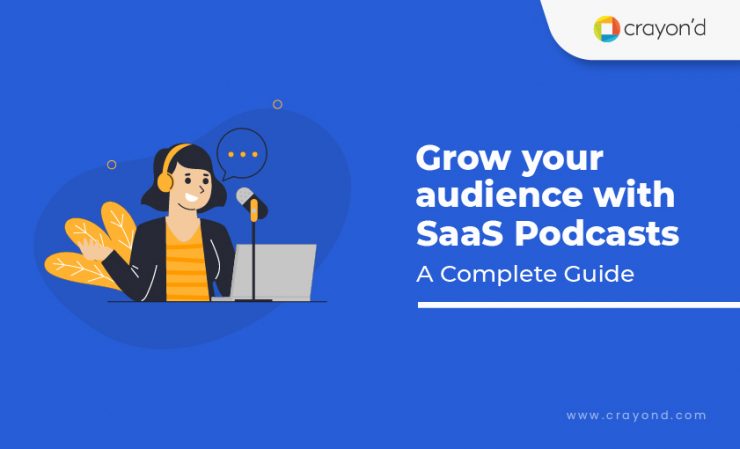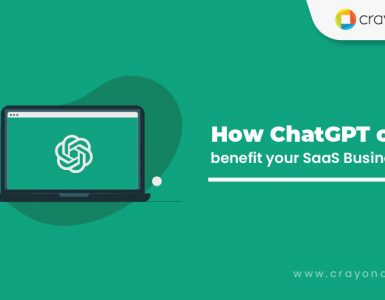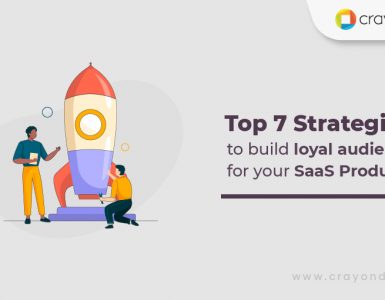485 million.
That is the number of people who listen to podcasts. Podcasts are becoming more popular among the audience. People prefer listening to things when they are traveling or doing something that does not require all their attention.
Podcasts help you build a genuine connection with your audience. It allows you to engage with the audience using long-form content without taking a lot of their time. It is a lot more engaging than blogs as your audience can listen to it on the go. According to recent statistics, there is one podcast for every 750 blogs and 29 YouTube channels. With this tremendous growth, now is a good time to start a podcast.
How to start a SaaS podcast?
Step 1: Develop a podcast concept
Podcasts somehow reflect a part of you because, unlike blogs, your audience is going to hear you. Therefore it is necessary that you pick a concept and stick to it. You need to ask yourself, who do you want to listen to your podcast?
Before you figure out the other details, you need to first ask “Why am I starting the podcast, what is my goal?”Once you have figured that out, you will be able to draw a complete picture.
Here are a few common goals:
- To generate leads for a business
- To be recognized as a leader in an industry
- To share an important message
- Increase brand awareness
Next, you need to pick a podcast theme or topic and the interval at which you are going to post. Followed by that you need to do some market research on that topic. One thing that you could do is to search your topic on different podcast listing sites like Apple, Spotify, and so on. Make a note of what is working out well for them and what needs to be improved.
Once you are done with the research, you should start thinking of podcast names. One tip here is that it should be memorable, catchy, and resonate with your offering.
Use keywords effectively without stuffing. Keywords in your title and description make it easier for people to find your podcast.
Here are a couple of examples:
- Akimbo: A Podcast from Seth Godin.
Most people searching for this podcast will probably search for Seth Godin. So it’s important to include his name in the title. - Syntax – Tasty Web Development Treats.
There probably aren’t many people searching for “Syntax” in Apple Podcasts (unless they’ve already heard of this show). By adding “tasty web development treats,” the podcast can show up if someone searches for “Web Development,” which will significantly increase the odds of being found by potential listeners.
Now, you might think you should start creating your podcast. No, not yet. There is a high chance that the concept of your show will change a few episodes down the line. So start recording a few episodes first and then look at creating the podcast.
Step 2: Choose your podcast format
There are different formats when it comes to hosting a podcast. Some are stories, whereas some could be a single host and some would be interviews. You need to choose something that resonates with your theme. For example, if you want to offer insights about starting a SaaS company, it makes sense to pick up an interview format because you need to bring in people from different departments to share their stories. But what is even more important is that you are comfortable with the format that you have chosen.
To make things easier, we have listed the different formats with examples below. You may go through the examples and pick up what suits you the best.
- Interview podcasts: These podcasts have a host who interviews people. Examples: The Joe Rogan Experience, Fresh Air, and Trained by Nike.
- Scripted non-fiction: These are serial podcasts where a series of episodes follow a single theme. Examples: Serial, Slow Burn, and Hardcore History.
- News recap: As the name suggests, it is a podcast where the host summarizes the news. Examples: The Daily, Kickass News, or Planet Money.
- Educational podcasts: These are podcasts that educate people on a particular concept. Examples: Stuff You Should Know, Hidden Brain, and TED Radio Hour.
- Scripted fiction: They are similar to radio dramas. They are scripted and produced. Examples: The Magnus Archives, Limetown, and CARAVAN.
Now that we know the different types of podcasts, you need to decide on the optimal length of the podcast. The truth is there is no optimal length. There are podcasts from 1 minute to 2 hours. Your podcast can be as long as it needs to be. But it is good to understand your audience. For example, if your podcast is for new moms, then they can’t be 2 hours long or if you are explaining in detail about a SaaS concept, it can’t be 2 minutes. People will want to know more. So the optimal time of your podcast entirely depends on the audience.
The next question that one might have is how often should I post a podcast. Podcasts can be done full-time or as a hobby. So, your schedule depends on your bandwidth. But for beginners, it is good to post at least once a week. It helps you build a connection with your users.
Step 3: Podcast recording equipment and software
Many might suggest that the quality of the podcast does not matter much and you can record right from your phone. But imagine how one would feel if they are constantly distracted by background noises.
Now if you are someone who has minimal knowledge in audio recording, you might shell out a lot of money on purchasing equipment. To save you the trouble we have listed a few tools and hardware that you will need.
Hardware:
- Good quality headphones
- Foam Ball or Pop filter
Podcast software:
Hosting:
Distribution:
- Apple Podcasts
- Connect
- Soundcloud
- Spotify
- Stitcher
- TuneIn
Step 4: Pick a place and start recording
An echo is a podcaster’s worst enemy. Pick a place that is quiet, and has a lot of space. The one mistake that most beginners make is to pick a small room. Small rooms echo a lot, which might hinder the experience for your listeners.
Beginner’s checklist
- Podcast Name & Description
- Identify niche-specific keywords
- Category of the podcast
- Artwork for the podcast
- Hardware
- Introduction script
- Theme music
- Recording software
- Hosting platform
- Distribution channel
Top SaaS Podcasts to follow
- 1. SaaS Growth Stacking

Dan Martell runs the SaaS Growth Stacking podcast. Within its 10 minutes episode, it helps you understand a concept and gives you something to implement.
He produces actionable content that every SaaS business will love and helps you reduce churn and points out other mistakes that startups generally do.
Right from growth hacking, fundraising, and how to elaborate an elevator pitch for your startup, Dan covers it all.
- 2. The Top Entrepreneurs in Money, Marketing, Business, and Life

Nathan is the author of the book How to be a capitalist without any capital, investor, and SaaS entrepreneur.
Top Entrepreneurs in Money, Marketing, Business, and Life is for those who love podcasts in the question and answer format. In his 20 minute episode, he brings in professionals from different SaaS domains and helps in understanding varied topics such as direct mail marketing, user experience research, and so on.
- Host Linkedin Profile
- Itunes Link
- Spotify Link
- Our favorite episode: Why You Should Buy and Sell SaaS Companies
- 3. Founder Chats

In the podcast Founder Chats Josh Pigford, from Baremetrics, sits down with different SaaS founders and interviews them on how different people run their businesses.
He has interviewed entrepreneurs like Rand Fishkin (former Moz and now SparkToro), Claire Lew (Know Your Team), and Ryan Carson (Treehouse).
- 4. The Startup Chat

Steli Efti and Hiten Shah are multi-millionaire SaaS entrepreneurs who built products like close.io and Crazy Egg. The pair covers the latest industry offering on each of their episodes. They give realistic pointers on how to run a SaaS business.
- 5. SaaStr

Saastr, founded by Jason Lemkin, is quite famous. The podcast offers top SaaS thought leadership content. Each content offering is an interview with a leading industry professional and right now more than 200 different episodes are available for download.
Some famous professionals like Bridget Gleason (Logz.io), Ryan Smith (Qualtrics), Erica Schultz (New Relic), have spoken on the podcast.
- 6. SaaS It Up Podcast

SaaS It Up brings professionals from across the globe. Started by Saswat and Oskar, it covers interviews with entrepreneurs, VCs, and ecosystem partners. In this podcast, you will unravel unique stories about their choices and the books that shape their worldview.
- Apple Podcasts Link
- Spotify Link
- Our favorite episode: From Indus Valley to Silicon Valley
- 7. The Maker Mindset

The Maker Mindset is a podcast brought by Mike Rubin. Mike is a bootstrap entrepreneur who managed to build and grow several SaaS businesses. In this show, Mike interviews professionals who share their experiences. It is a must-listen for every aspiring SaaS entrepreneur.
- 8. The SaaS Podcast

In this podcast, Omer Khan reviews the latest trends and data for entrepreneurs in the SaaS world. Each session will offer insights on launching your first SaaS product.
- 9. Scale or Die

Scale or Die is a podcast hosted by Dave Rogenmoser, the co-founder of proof. It is a 30-minute episode that provides unique insights to help your business grow.
- 10. Gain Grow Retain

This is one of the very few podcasts that focus on customer success. It is hosted by IJeff Breunsbach and Jay Nathan who share conversations with top leaders on growing and scaling subscription businesses with a customer-first approach. It is aimed at SaaS and technology leaders who are facing the day-to-day challenges of scaling.
Bottom line
Podcasts today are what blogs were in 2010. If used correctly it can increase awareness, acquisitions for your SaaS company multi-folds.







Add comment